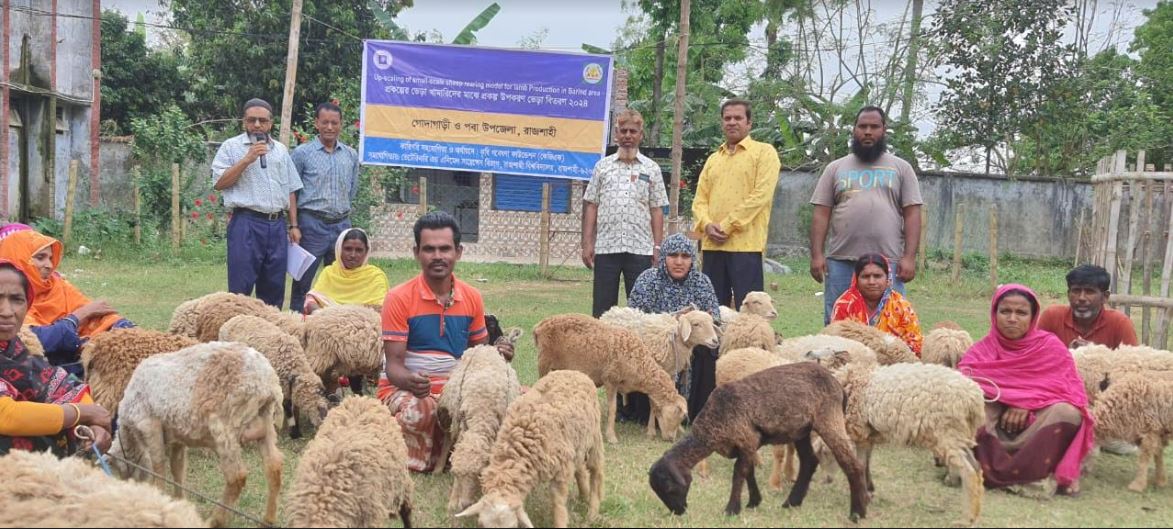
RAJSHAHI, April 8, 2024 (BSS)- A total of 28 marginalized female farmers were
given lambs free of cost aimed at improving their living and livelihood
condition through rearing the sheep properly.
Each of them was given four female sheep and one male lamb in different
phases.
Earlier, they were imparted two-day training in this regard.
On behalf of the "Up-scaling of small-scale sheep rearing model for land
production in Barind area" project, Krishi Gobeshona Foundation (KGF)
distributed the lambs among farmers of different places in Godagari and Paba
upazilas in the district.
The Department of Veterinary and Animal Sciences at Rajshahi University (RU)
has been implementing the project financially supported by KGF with the main
thrust of elevating the rural people through income generating activities.
A lamb distribution ceremony was organised at Narkelbaria campus of RU today
(Monday) where eight farmers were given lambs. A target has been set to
distribute lambs among 40 farmers under the three-year project.
Earlier, 61 grassroots farmers were given sheep on behalf of their previously
implemented "Validation of Good Practices of On-farm Lamb Production System"
project.
Founder Dean of Veterinary and Animal Sciences Faculty and Principal
Investigator of the project Professor Jalal Uddin Sarder and Co-investigator
Dr Hemayetul Islam distributed the lambs.
Journalist Dr Aynal Haque and Chartered President of Rotary Club of Rajshahi
Central Hasibul Hassan and Field Staff of the project Zahid Hassan were
present on the occasion.
Prof Jalal Uddin Sarder told BSS that they have attained remarkable success
through giving the sheep under the project.
Boosting lamb farming can be the best way of meeting the existing demands of
animal protein besides improving living and livelihood conditions of the
people, particularly the marginalized and ethnic minorities, in the region.
Prof Sarder said quick economic growth of the region can be possible through
proper uses and development of livestock resources and urged the rural people
to boost commercial sheep farming to meet the nutritional demand.
In addition to disseminating a small-scale sheep rearing model among the
farmers in the Barind area the project is intended to increase awareness
about sheep rearing and family income.
As a whole, the project intends to boost the supply of nutritious lamb meat
with improving the living and livelihood conditions of the marginal farmers
through rearing lambs.